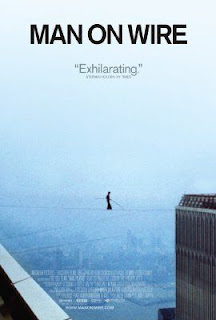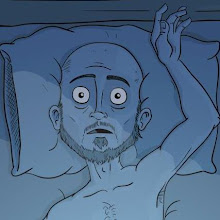 Documentaries can tend to be dour affairs, dealing with issues that provoke, shock and even enrage. Even Michael Moore’s documentaries, which go for laughs more than facts are about issues that show the worst in humanity. But occasionally you get something that is completely different in tone. Something that deals with something more light hearted than the war in Iraq or the state of the US health service. The King Of Kong: A Fistful of Quarters, released last year is a documentary that deals with a gravely important issue: Who is the greatest person ever to play Donkey Kong?
Documentaries can tend to be dour affairs, dealing with issues that provoke, shock and even enrage. Even Michael Moore’s documentaries, which go for laughs more than facts are about issues that show the worst in humanity. But occasionally you get something that is completely different in tone. Something that deals with something more light hearted than the war in Iraq or the state of the US health service. The King Of Kong: A Fistful of Quarters, released last year is a documentary that deals with a gravely important issue: Who is the greatest person ever to play Donkey Kong?On one hand, you would think that a documentary about two ‘athletes’ competing for a video game record wouldn’t exactly make for compelling watching. But, you’d be wrong. The King Of Kong isn’t simply about gaming. It’s about rivalry, jealousy, paranoia and the will to succeed. On one hand we have Billy Mitchell. He’s the number one Donkey Kong player of all time. He holds other records, but this one is the daddy of them all. He owns his own hot sauce company, wears a US flag tie and pulls his pants up towards his nipples. He is a legend in his field, has a cadre of lesser gamers who bow to his every whim. As the film starts, he is the king of Kong. And then we have the underdog. Steve Wiebe. Failed athlete, high-school teacher, with a loving family and a passion to succeed in Donkey Kong. And when these two go head to head, the drama comes thick and fast.

While it deals with a subculture, the drama caused by the rivalry is utterly compelling. The characters, who are real people are totally unique and how these people interact with each other makes for bizarre and amazing viewing. If the film were fiction, it’d be a fun, quirky comedy. The kind of film that would be similar to Napoleon Dynamite. The fact that the film is real is both amazing and baffling. From the get-go you’re drawn in by who these people are and why they’re so unique. You have the heroes and the villains. The winners and losers. And with that comes the drama. And comedy.
The film balances sentimentality in a way that gives you a real emotional investment in what happens. It’s easy to dismiss the whole idea of the Donkey Kong record as pointless. In the bigger scheme of things, it really means nothing to anyone but those with an interest. But that shouldn’t stop anyone from watching the film. While having an interest in games provides with a little more interest, there’s plenty for those who have no interest at all in Donkey Kong. After all, this is a film about human interaction.

The King Of Kong wont change the world. Nor does it ever seek to do that. It just presents a unique situation and the crazy characters who are involved with the situation. It’s a film that deals with universal themes within a small sub-culture. But it’s incredibly compelling and never for a second gets tedious or dull. One of the better documentaries I’ve seen, The King Of Kong will have you gripped from the moment it opens. It’s bizarre, hilarious and incredibly entertaining.
 9/10
9/10







































